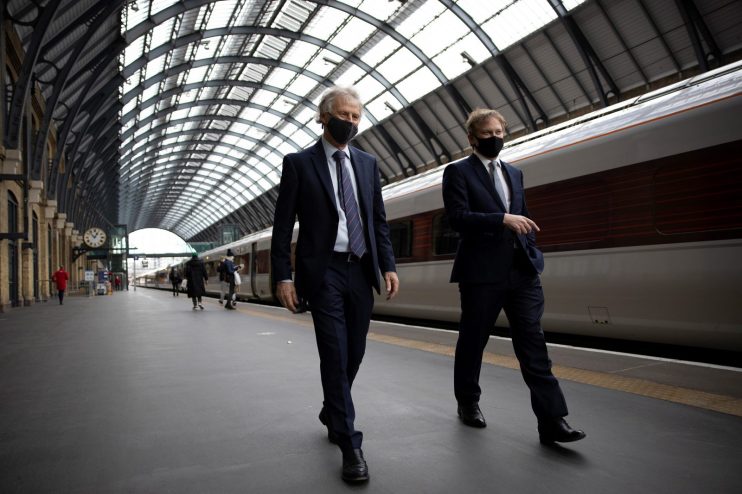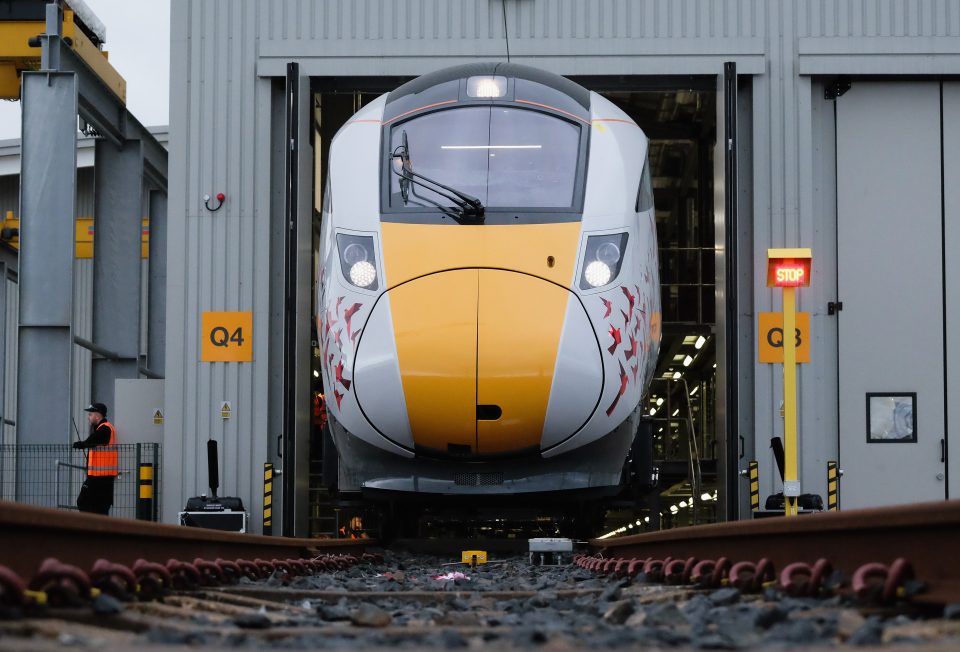Rail reforms: the Fat Controller, new fares, and a ‘farewell’ to franchising

After years of anticipation, and not a few false starts, the government today announced its much-lauded plan to reform the UK’s railways.
Complete with pledges to “fix the broken system” and deliver a better service “for the passenger”, the white paper presents a vision of the country’s rail network that is a clear break from the current franchise model.
Here are the key takeaways from the paper, and what they mean for passengers.
The ‘Fat Controller’
Central to the paper is the creation of a new body, Great British Railways (GBR), which will absorb existing organisations such as Network Rail.
This organisation “will bring together the whole system and perform a role for rail services similar to the one Transport for London has in the capital”.
It will be the “guiding mind” for the system, or, as some prefer, a “fat controller”.
It will draw up timetables and set most fares, bringing together the various elements of the industry under one umbrella.
Franchises will continue to operate the services themselves, but under a new contracting system (see below).
For some, such a move heralds a return to the pre-privatisation days of British Rail, but transport secretary Grant Shapps is adamant it will not mean a throwback to the “terrible sandwiches” of that era.

The new body will be directly accountable to ministers, the paper says.
Fares to be ‘simplified’
Appropriately for a plan designed “for the passenger”, the paper pledges that the current system of rail fares, which has long been bemoaned as overly complex, will be “simplified”.
Since 1997, fares have increased 47 per cent in price, which ministers said showed that private franchises had failed to deliver sufficient efficiency for customers.
But under the newly-announced GBR, the majority of fares will now be set centrally, doing away with the thousands of existing pricing combinations.
Train operating companies will retain some control over long-distance journey fares, but ministers have pledged to keep off-peak journeys available as now and cap season ticket fares.
However, there is no guarantee that the new system will be cheaper for customers. Speaking to the Today programme, transport secretary Grant Shapps said that although the new system did not mean a rise in fares was inevitable, he could not give guarantees for the future.
Passengers will also be able to get their tickets from one central online platform – bad news for Trainline, as today’s share price made clear.
Flexible season tickets and more
One of the biggest changes, especially for workers switching to hybrid office working after the pandemic, is the introduction of new flexible season tickets.
These will be available from 21 June, and allow passengers to travel for eight days out of every 28.
“Passengers will not have to choose the days in advance of travel and they will not have to be spaced out in any particular way over the ticket’s validity period”, the paper says.
Before the Open: Get the jump on the markets with our early morning newsletter
However it is yet to give any details of the discount that passengers will get. Commuter groups have tentatively welcomed the plans, but called for clarity on what deals travellers will receive.
Alongside the carnet-style tickets, Great British Railways will also introduce pay-as-you-go style tickets on commuter and urban rail systems around the country.
As on the London Underground, this will allow passengers to tap-in and out of transit options using a card or mobile.
Farewell franchising… sort of
One of the biggest changes was broadly anticipated: a move away from the 30-year-old system of rail franchising.
The system was much criticised even before the pandemic began, but fell apart totally with the collapse of passenger numbers.
Under the new system, passengers will continue to travel on trains operated by South Western Railway or LNER, but how these contracts are run has changed considerably.
Now, instead of franchises collecting fare revenues, this will go to GBR instead, who will pay each operator a fixed fee for running the service.
This sort of concession model is already used by Transport for London for the Overground.
The body will also offer bonus fees to operators which fulfil criteria such as cleanliness and punctuality.
The first such deals were announced this morning. For example, First Group will now receive £3.3m for running South Western Railway for two years, with a maximum performance award of £9.9m for running a punctual and clean service.
The paper added that the new contracts would be more competitive, allowing new firms to enter the market.
Electric dreams
Finally, the white paper says that the government will accelerate plans to decarbonise the rail network over the next 30 years, in line with the UK’s climate targets.
For the most part, this will be done by expanding electrification, but there will also be trials of Battery and hydrogen-powered trains where electrification is not a good economic option.
A “comprehensive” environmental plan for the network, setting out these changes, will be published in 2022.